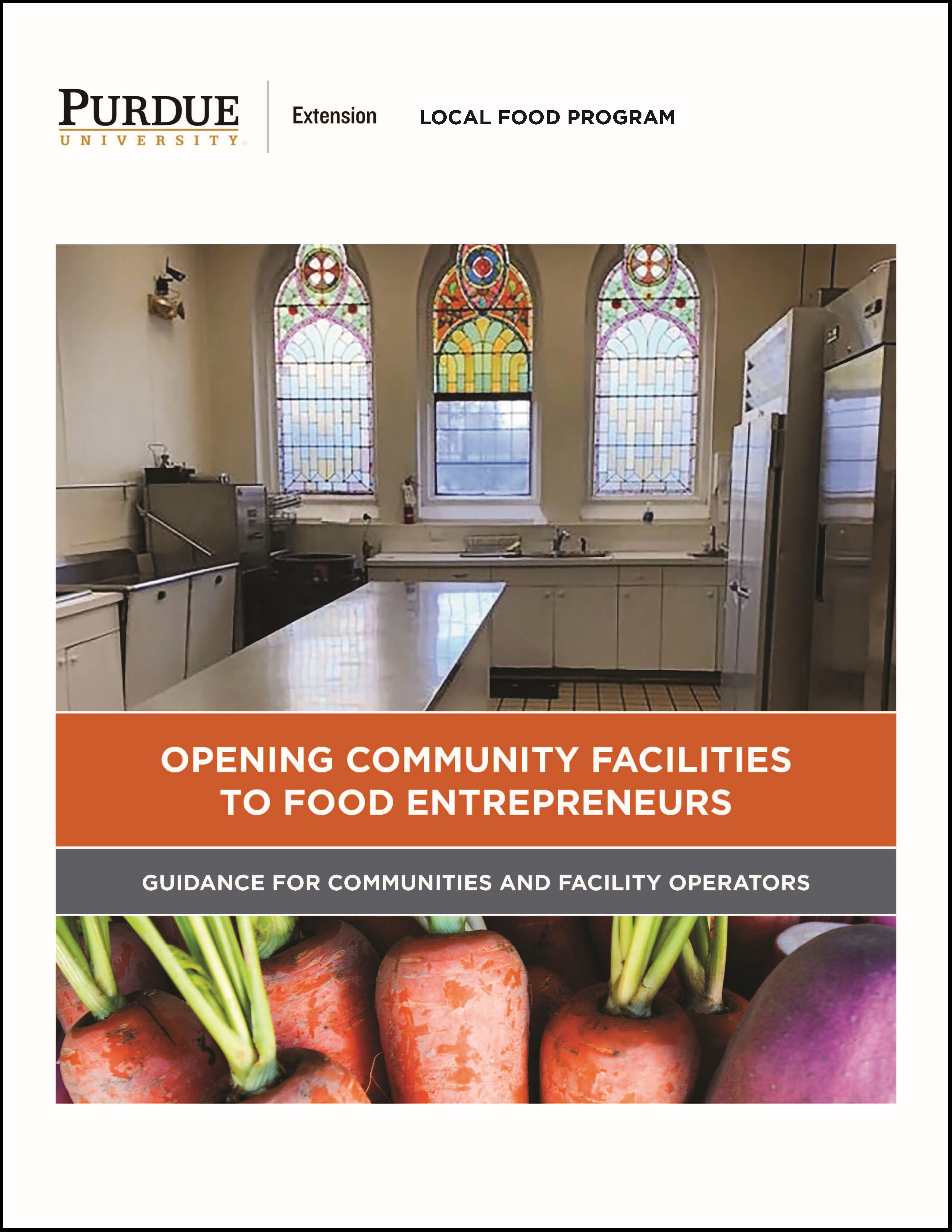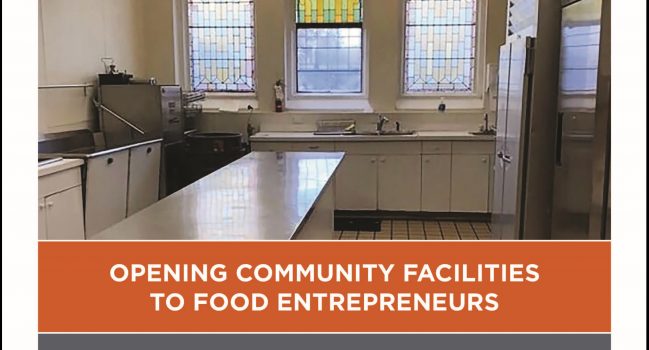Kitchens in community-serving buildings are often overlooked as potential resources for new food businesses that need affordable, flexible, licensed kitchen rentals to test and grow their food business concepts. Fruition Planning & Management is pleased to have recently partnered with Purdue University Extension on a new guide for engaging community facilities – such as community centers, religious buildings, clubs and educational facilities – in local entrepreneurial ecosystems.
Opening Community Facilities to Food Entrepreneurs: Guidance for Communities and Facility Operators is a free publication that provides practical insights for facilities and stakeholders looking to evaluate kitchen rental opportunities in community buildings. These kitchens can play a vital role in fostering entrepreneurial potential in local food economies, particularly in areas that lack professional shared commercial kitchens or kitchen incubators. Leveraging underutilized kitchens can be a cost-effective way to expand kitchen access in a community. Renting idle kitchen time can also generate revenue to support facilities and their community programs. But making the leap into hourly kitchen rentals can be challenging for organizations that are unfamiliar with the food industry.
Opening Community Facilities to Food Entrepreneurs builds on our collaboration with The Food Corridor and Purdue University Extension on the cornerstone publication, Shared Kitchen Toolkit. This latest resource fills an important gap in guidance for existing community-serving facilities interested in renting extra kitchen capacity. These kitchens have unique considerations because they are designed for different uses and generally host a variety of other activities, such as meal programs, congregational functions and weddings. They often play many roles in their communities and must weigh rental compatibility, management capacity and return on investment differently than organizations whose primary mission is to serve entrepreneurs or farmers.
We designed this new publication as a starting point for facility managers looking to understand what it takes to rent out a kitchen. The guide explains what entrepreneurs generally look for in a rental and explores common rental management approaches. It also describes the five key steps to getting started with kitchen rentals.
In addition, the guide is a tool for community stakeholders (such as food systems, entrepreneurship, and economic development organizations) interested in expanding kitchen access locally. It discusses the benefits and limitations of these kitchens and highlights outreach and support strategies that can encourage community facilities to serve entrepreneurs. It also profiles emerging Kitchen Connect programs that help unlock the potential of existing resources to catalyze entrepreneurial growth.
This topic has been of special interest to Fruition Planning & Management and we are thankful to the many organizations that contributed to the resource. We are especially grateful to Purdue University for the opportunity to collaborate, and to North Central SARE for making the project possible.
You can download a free copy of the guide here.


